Eastern innovation: the international show CES launches its first edition in China
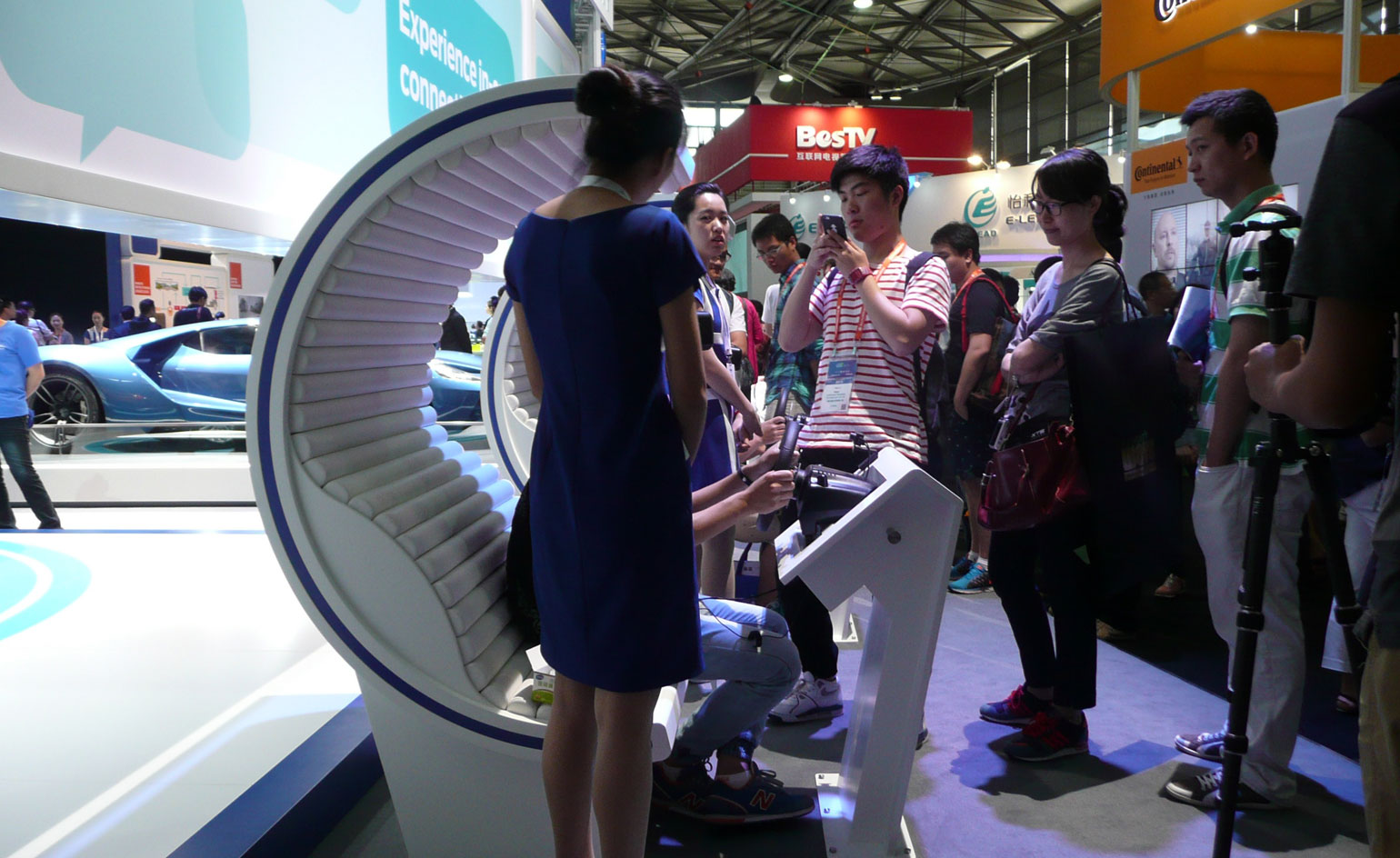
'The car is the biggest tech gadget,' declared Audi chairman Rupert Stadler at the opening ceremony for CES Asia. This is the first time the leading consumer electronics show has been held in China. Although still substantially smaller than the main event in Las Vegas, it has big ambitions to grow in size, and a clear vision to be the voice of innovation in Asia.
'Shanghai is the city of the future,' followed Gary Shapiro, explaining why, as the president of the Consumer Electronics Association, he chose the country's creative hub to host this inaugural event.
The technology was certainly prominent. The following day we were introduced to a selfie drone and a robotic chef as well as the usual panoply of electric gadgets, wearable tech, personal transporters, bluetooth headphones and curved TV screens, all displayed at the shiny new expo centre in the Pudong district. Yet it was a self-driving concept vehicle from Audi that took centre stage.
The marque chose the occasion to unveil the ultimate piloted car. The semi-autonomous R8 e-tron is a 456bhp supercar powered by electricity and steered by a computer. This is a highly advanced machine that's intended to single-handedly address all our concerns about future mobility - sustainability, connectivity and digitalisation.
The e-tron is a tech gadget like no other. Piloted driving offers a bridge between the present and a future of fully autonomous motoring. When stuck in traffic jams, for example, or with a need to deal with an urgent text, the computer takes over and the car is manoeuvred autonomously so you have time to save your arms , feet and reflexes for the open, twisty road, where the R8 e-tron's dynamic brilliance comes into its own.
At the heart of piloting is Audi's central driver assistance control unit (zFAS), designed to process information from exterior sensors to generate a detailed picture of the vehicle's environment. The new electronics architecture sees the hardware separated from the mechanical side so the electronics, with a typically shorter life cycle, can be frequently updated without the need to invest in updating the entire car. Audi has a lead on the technology, first shown in last year's piloted A7, which we were briefly chauffeured in around Shanghai.
Precarious local driving habits certainly added flavour. Whilst the A7 stayed politely in the middle lane, local cars overtook and undercut without warning at terrifying speeds as our on-board expert explained that Audi is investigating local driving habits to help configure regional driverless cars. Shanghai, he concluded rather nervously, may require a few extra sensors.
The computer will only take control if traffic conditions allow it and on straightforward routes. It will drive up to 60mph after which it alerts the human driver to take control. If this fails, the car will go into emergency mode igniting the hazard lights and slowing down to a halt then notifying relevant rescue services to respond. Thankfully we didn't get to experience this.
The technology is impressive. Google in particular has made great strides in this direction, with Apple reportedly waiting in the wings, yet Audi will be the first car manufacturer to offer a piloted production car when the next generation piloted A8 is unveiled in just two years time.
The company is convinced of the importance of autonomous motoring. In his speech Stadler reminded us that nine out of ten accidents are caused by human error. 'Piloted driving has the potential to make driving safer,' he offered.
Launching the R8 e-tron in China is a testimony to the significance of the country for Audi. China is now its largest single market. It is also a relatively youthful one with the average Audi driver aged 36, compared to the middle-aged demographics in Europe and the US. The needs and wants are therefore completely different in China.
Saad Metz, head of Audi research and development in Asia, says the key here is to localise projects, to find solutions that answer the needs of locals. A centre in Beijing was established two years ago expressly for trend scouting and defining specs for the region.
He says: ’the conditions we face in China are the most challenging from their roads to harsh weather conditions. The traffic in megacities and the multi-story road arrangements call for a complex navigation technology.’ It also means forming strategic regional partnerships with software provides, the likes of Cubic Telecom, Huawei and Baidu - all announced at CES.
’We are experiencing a digital revolution stronger than the industrial revolution. The question is how we shape the digital future,’ says Stadler, before adding, ’and we are ready to take risks.’
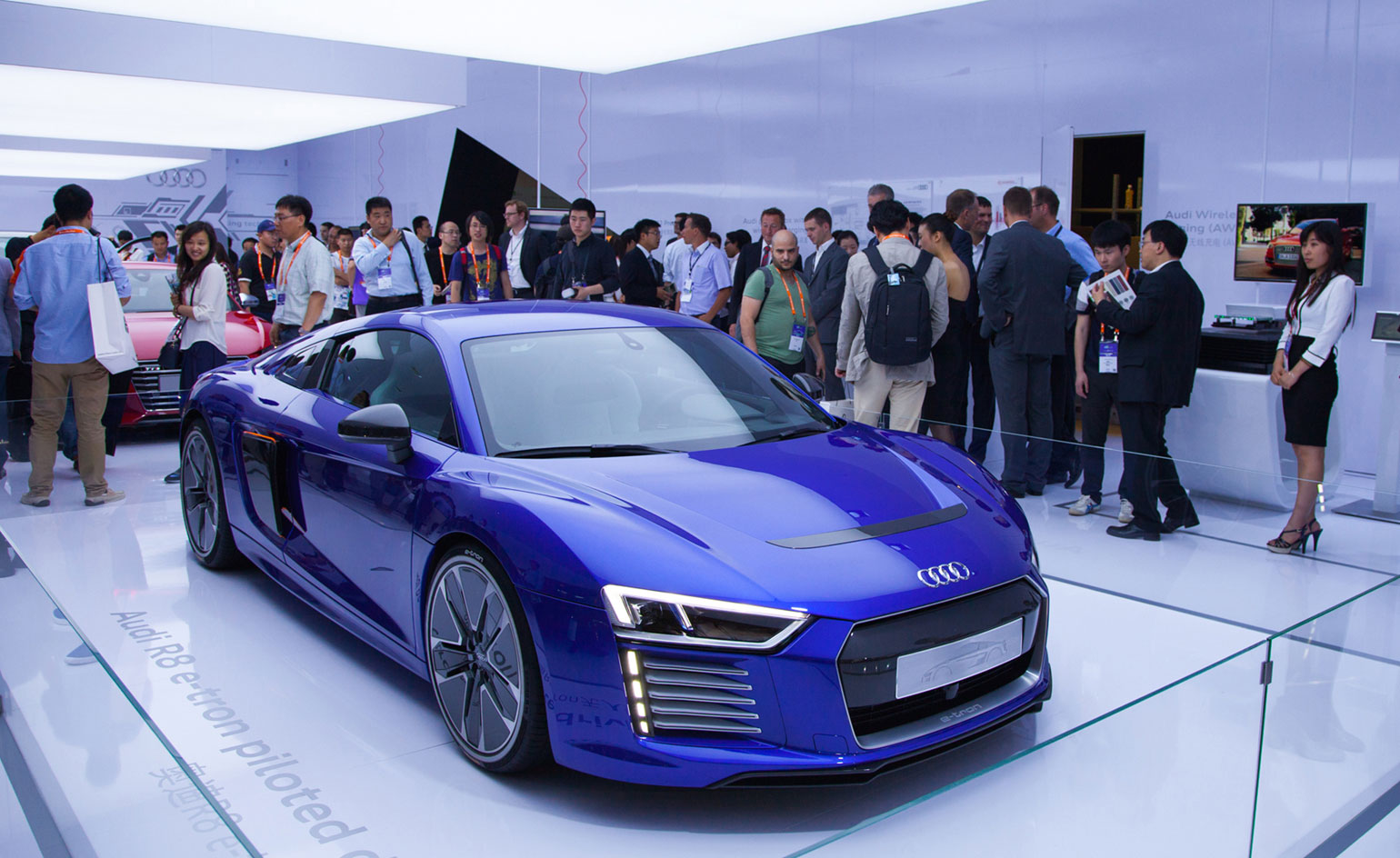
Piloted Motoring: Powered by electricity and piloted by a computer, the R8 e-tron concept, launched at CES Asia, is the ultimate piloted car, and a tech gadget like no other. At the heart of the car is the central driver assistance control unit (zFAS) that processes information from exterior sensors to generate a detailed picture of the vehicle's environment...
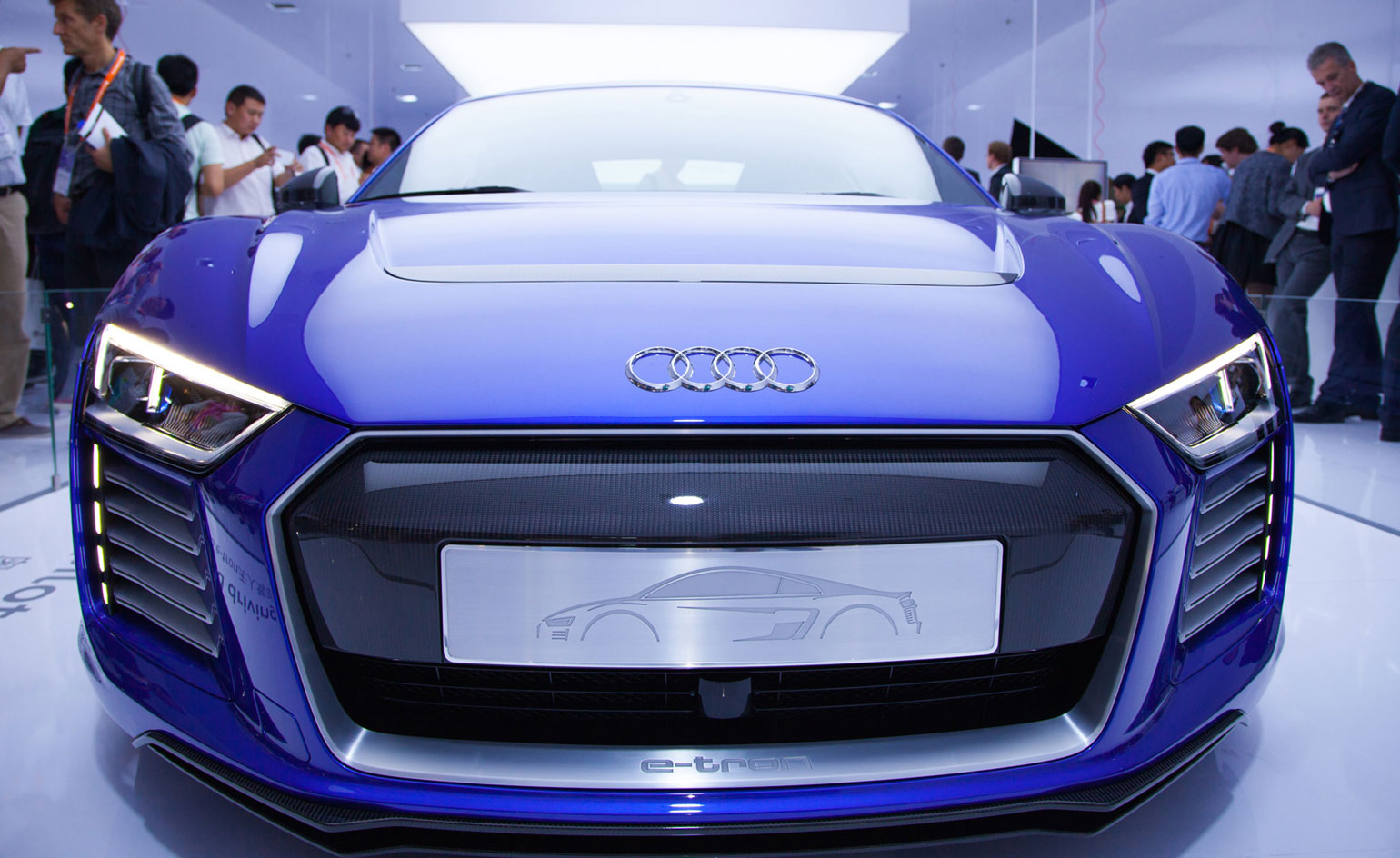
...The stats are impressive. Two independent electric motors supply power to the rear wheels generating some 456bhp for maximum torque of 679lb ft. It can race from naught to 62mph in just 3.9 seconds topping up a limited 155mph. The lithium-ion battery on-board is 85% larger compared to previous e-tron technology offering more energy and an electric range that has doubled to 450km
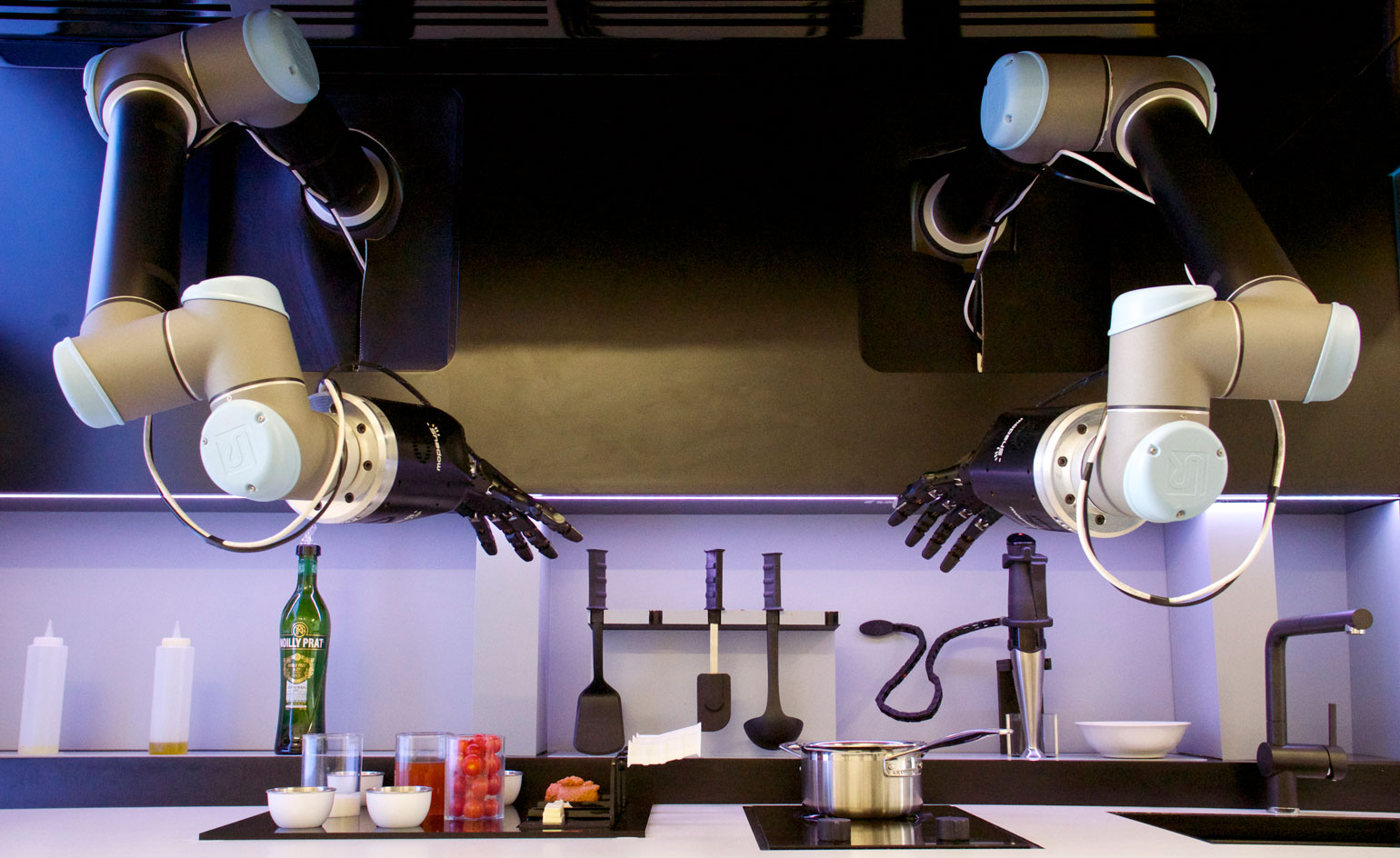
Robotic Kitchen: A robot that does your cooking won over visitors as it whipped up a complicated crab bisque dish live on the exhibition stand. Created by UK firm Moley Robotics, the automated kitchen concept features two large robotic arms which construct dishes from an iTunes-style library of recipes...
Receive our daily digest of inspiration, escapism and design stories from around the world direct to your inbox.
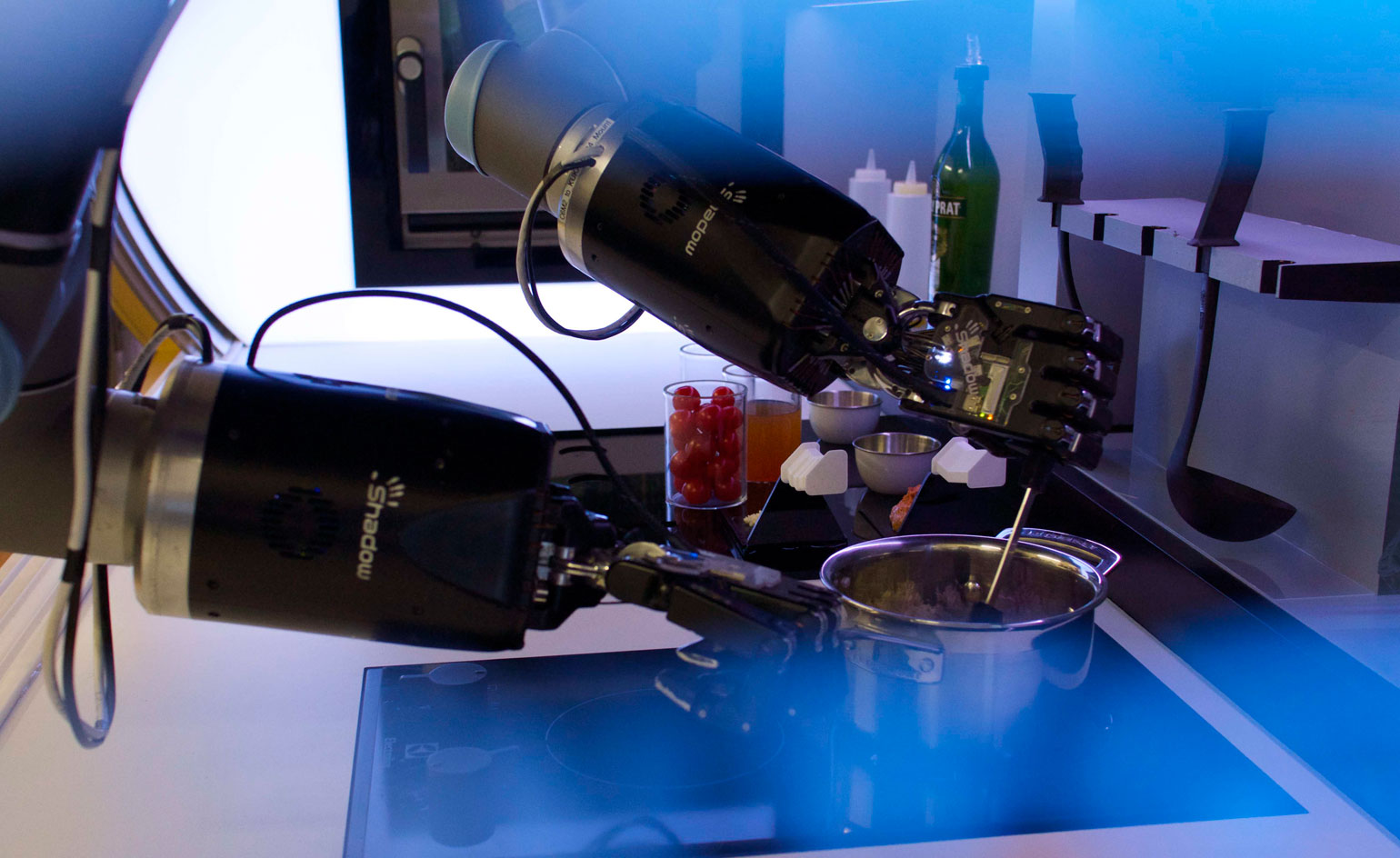
...The product launched at CES Asia is a collaborative project with Sebastian Conran who designed the cooking utensils, and DYSEGNO and the Yachtline for the futuristic kitchen furniture. Shadow Robot, who work with NASA, built the arms that consist of 20 motors, 24 joints and 129 sensors to mimic the movements of human hands. Moley aims to produce a mass-market consumer version within two years
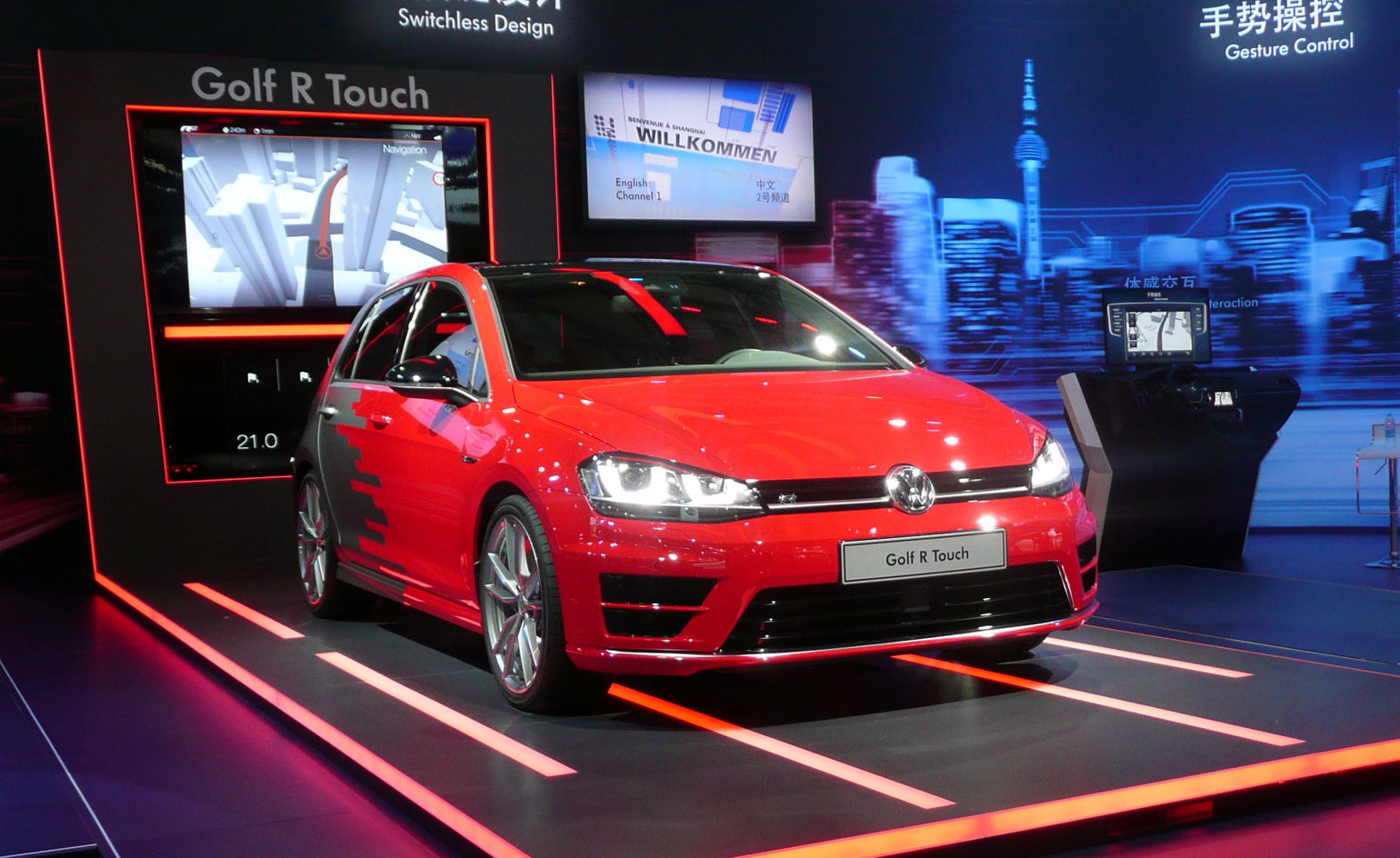
Gesture Control: Shown for the first time at CES Asia, Golf R Touch concept utilises Volkswagen's latest gesture control technology that uses hand movements in front of the car's infotainment display to interact with your car...
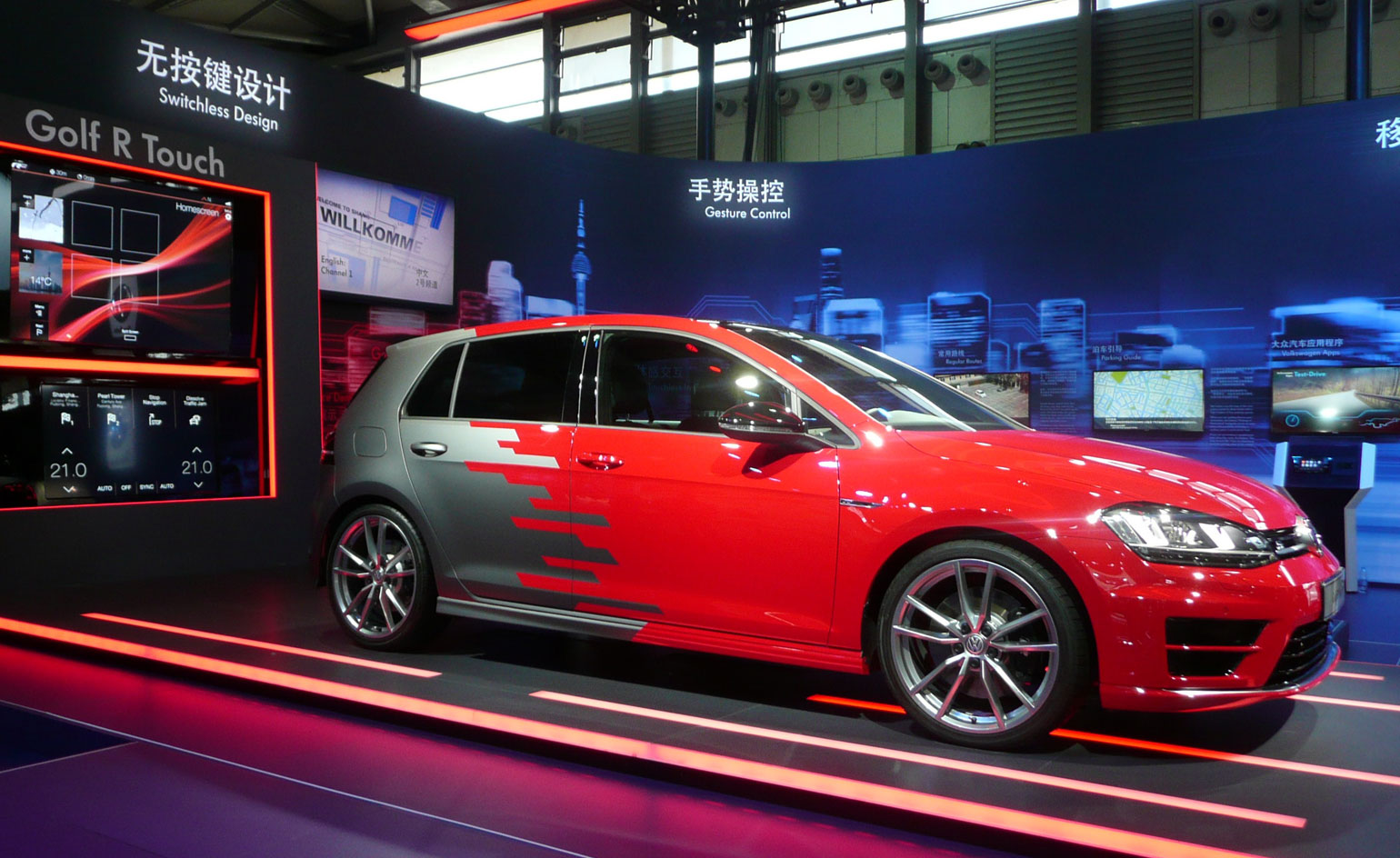
...This includes gestures to open the sunroof, alter the climate control and raise or lower the volume of the stereo. Gesture control technology has obvious benefits of easing driver distraction and de-cluttering the cabin by reducing the number of controls
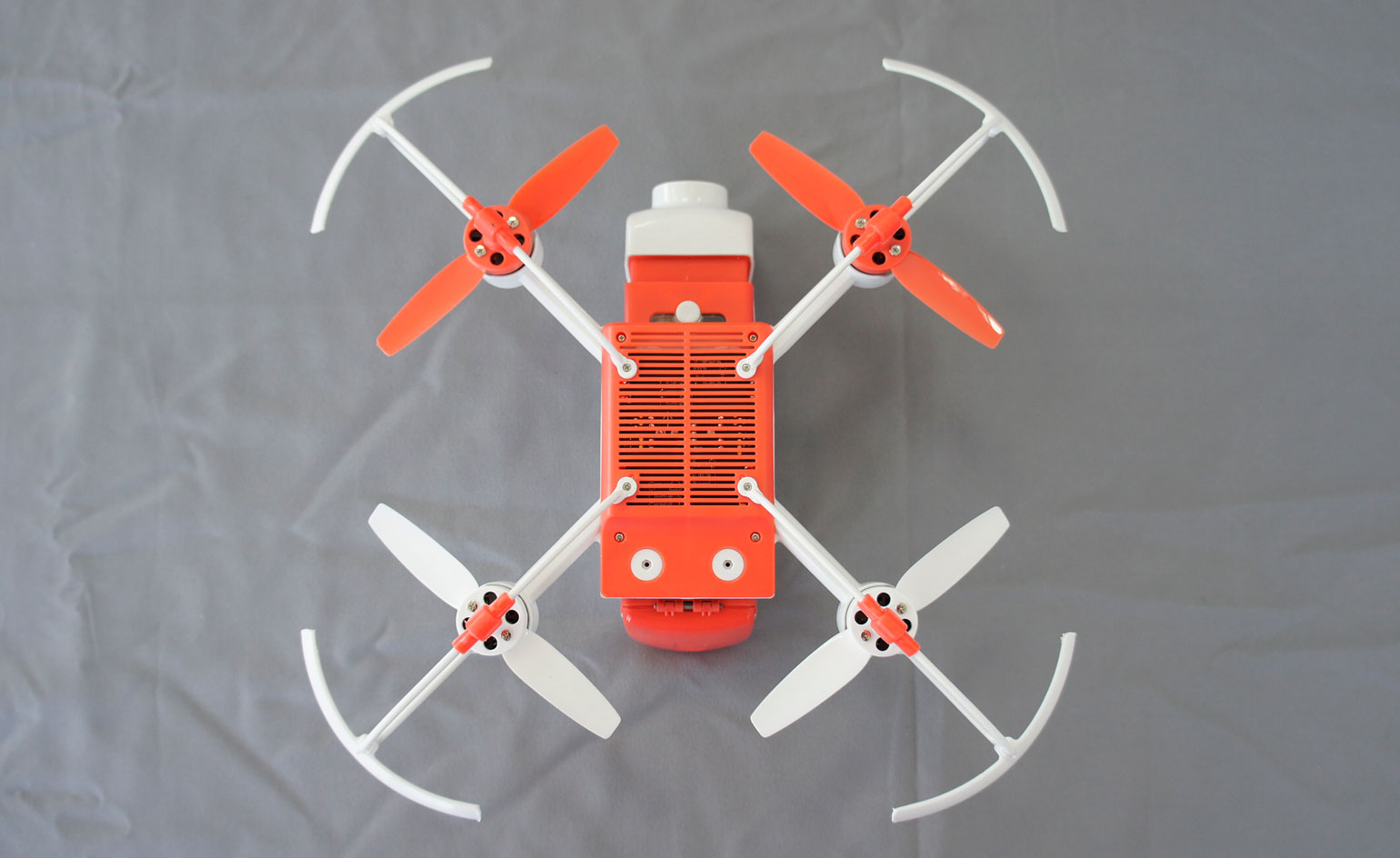
Selfie Drones: Selfie enthusiasts will love the Cicada, the latest drone to connect to the mobile phone for the perfect snap...
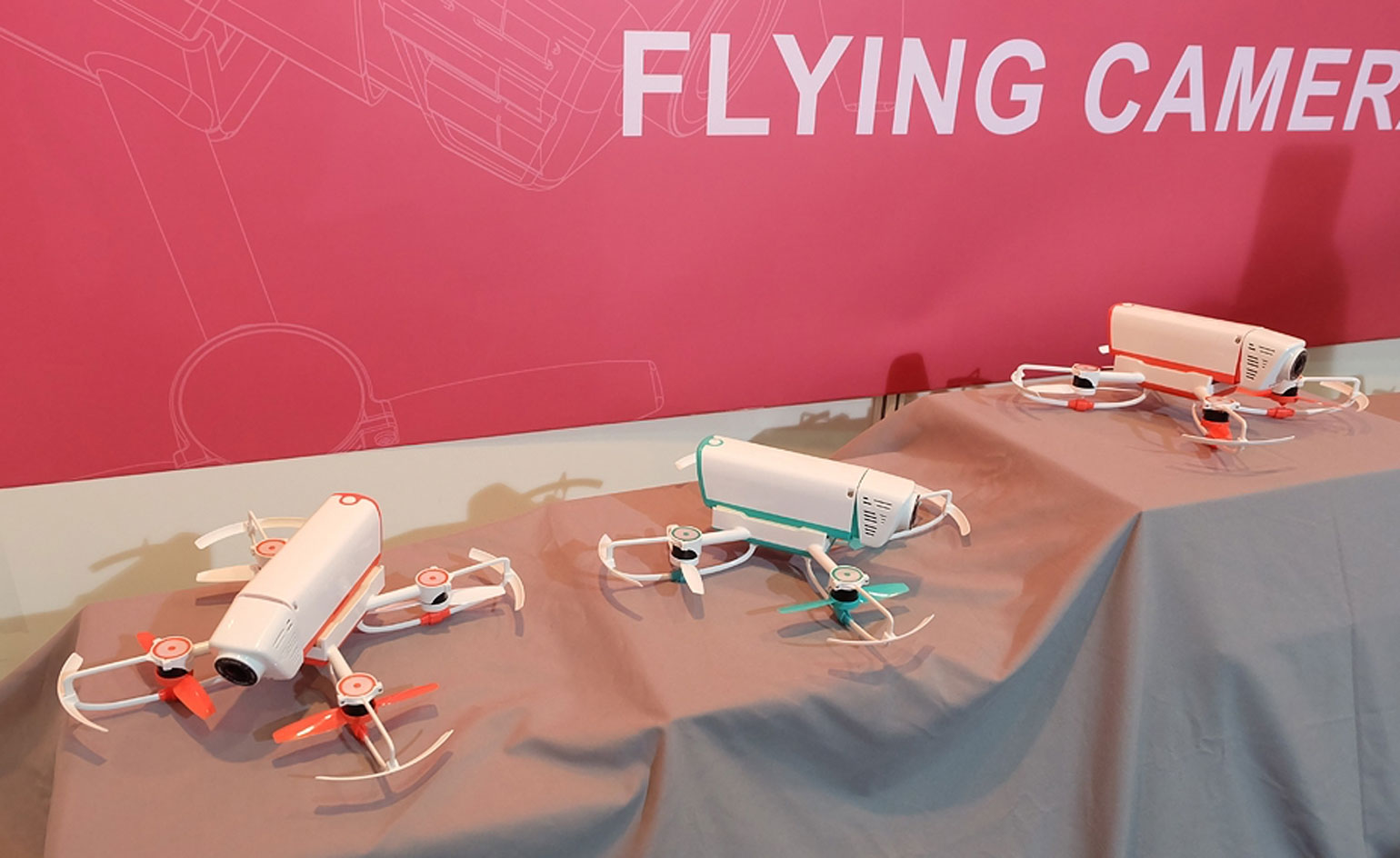
...Developed by drone specialist Elanview Technology, the flying camera is made of lightweight material and can be controlled at a maximum distance of 328ft using your mobile phone or tablet. All you have to do is install the Elanview app
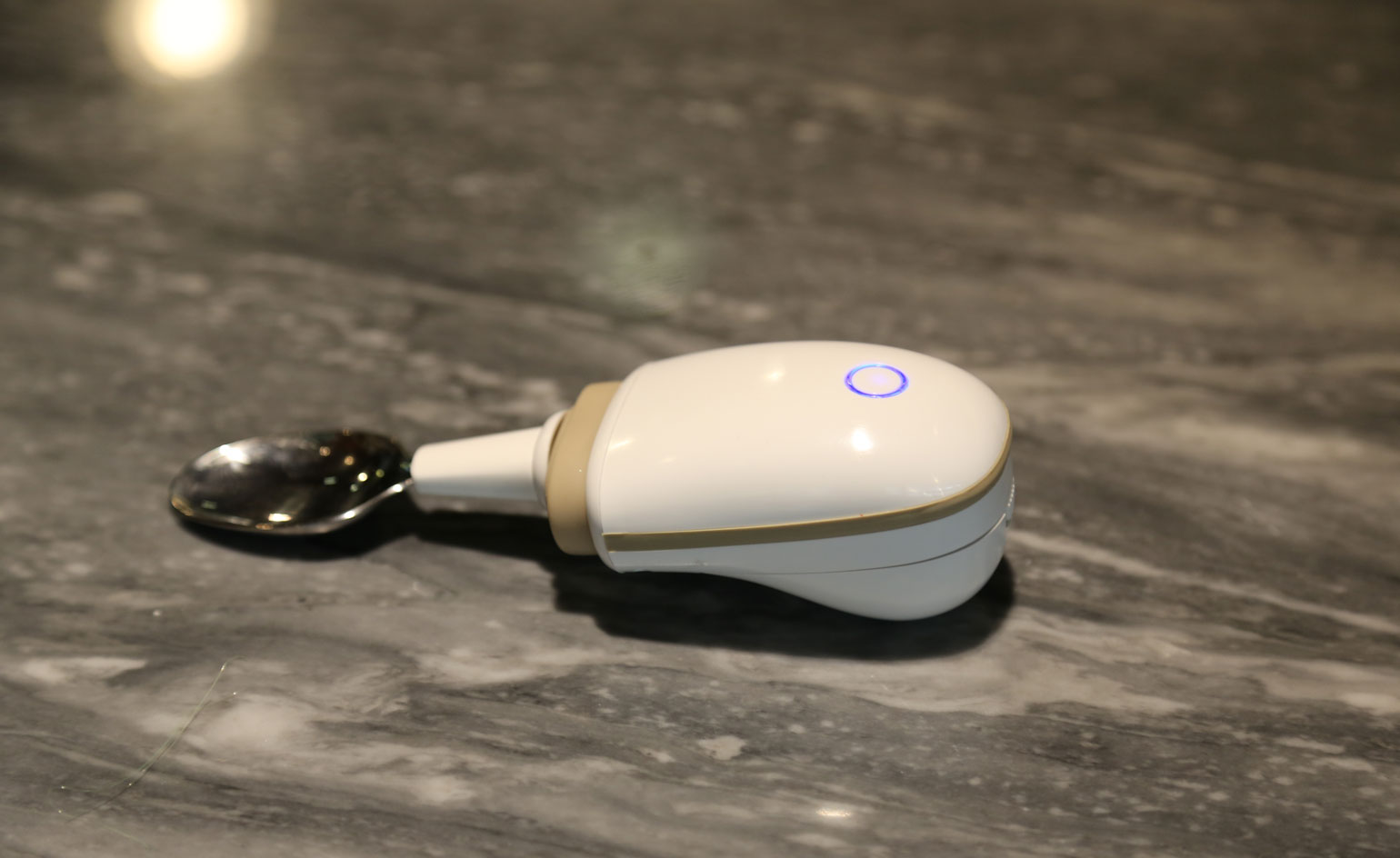
High-tech spoons: The Gyenno Spoon is a clever, if awkward looking, device designed to help people with hand tremors, particularly those with Parkinson's disease. The work of Shenzhen firm Gyenno algorithms automatically the distinction between intentional hand motion and unconscious shaking offsetting some 85% of the tremor...
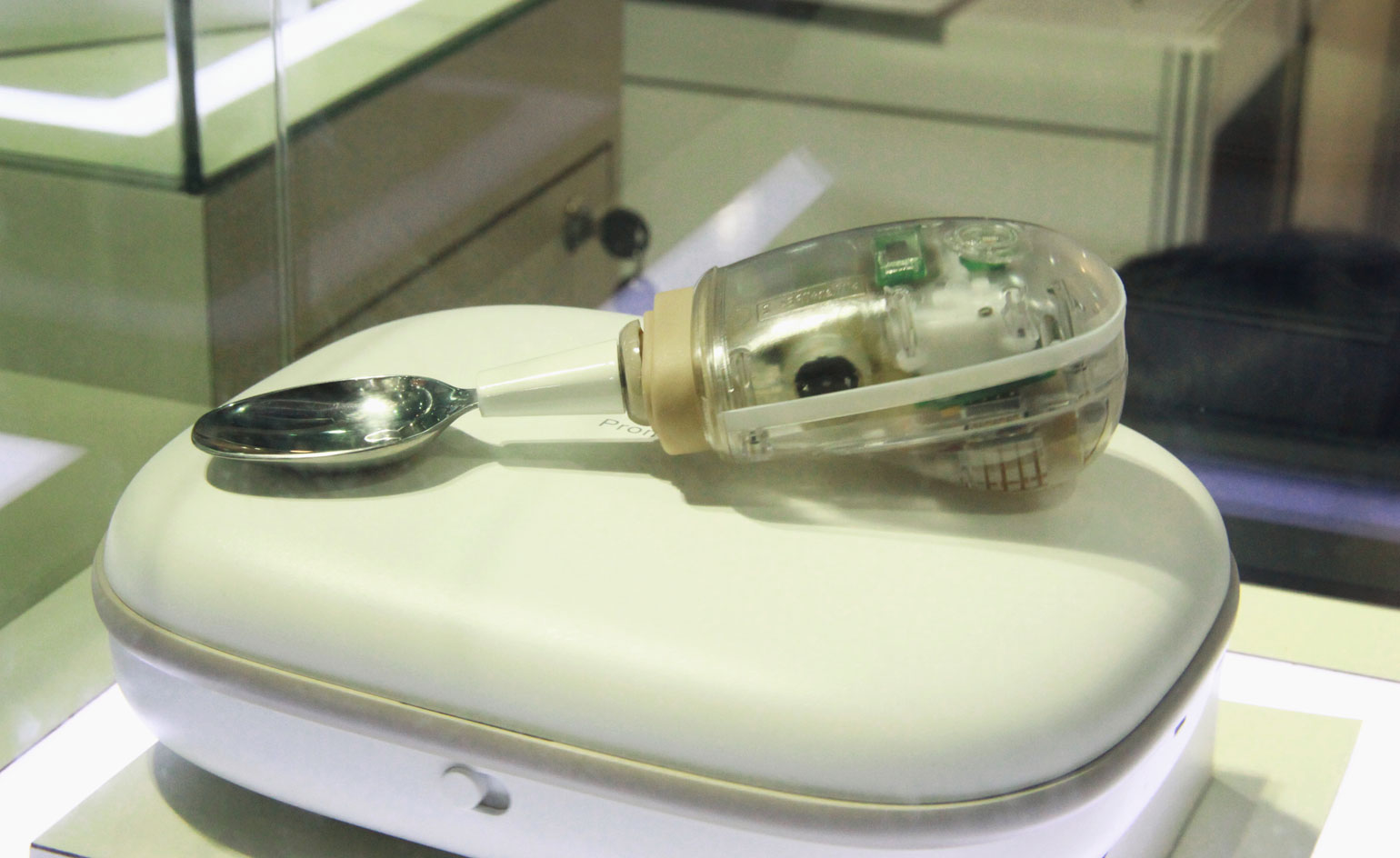
...The spoon's intelligent high-speed servo control system provides fast and accurate 360-degree stabilisation, and smart technology sends it to sleep once the user has finished eating
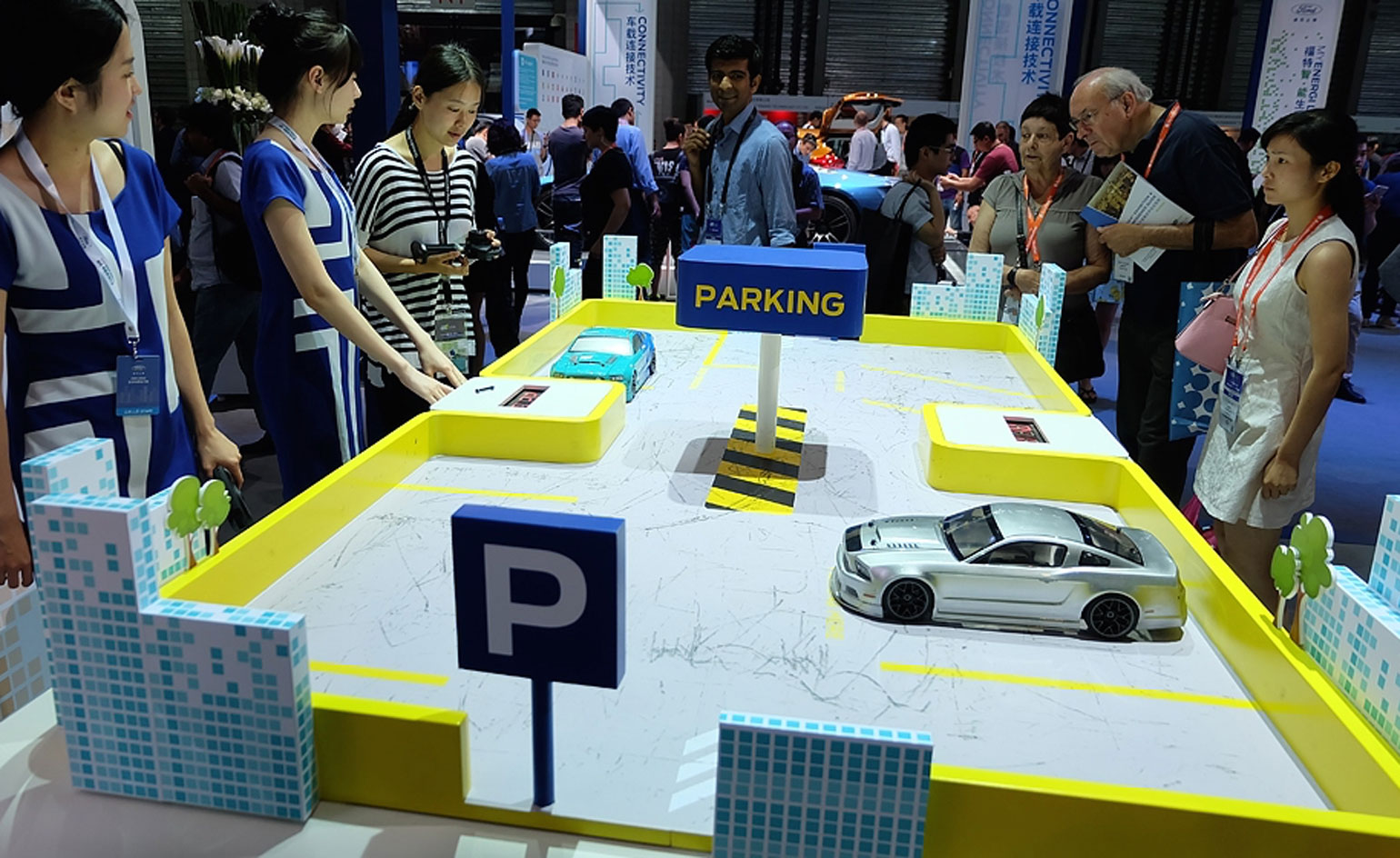
Sustainable Life: MyEnergi Lifestyle is a sustainability initiative by Ford in China. The carmaker is joining forces with local appliance manufacturer Haier, solar power company Trina Solar and electric vehicle charging company Delta Electronics to significantly reduce energy costs...
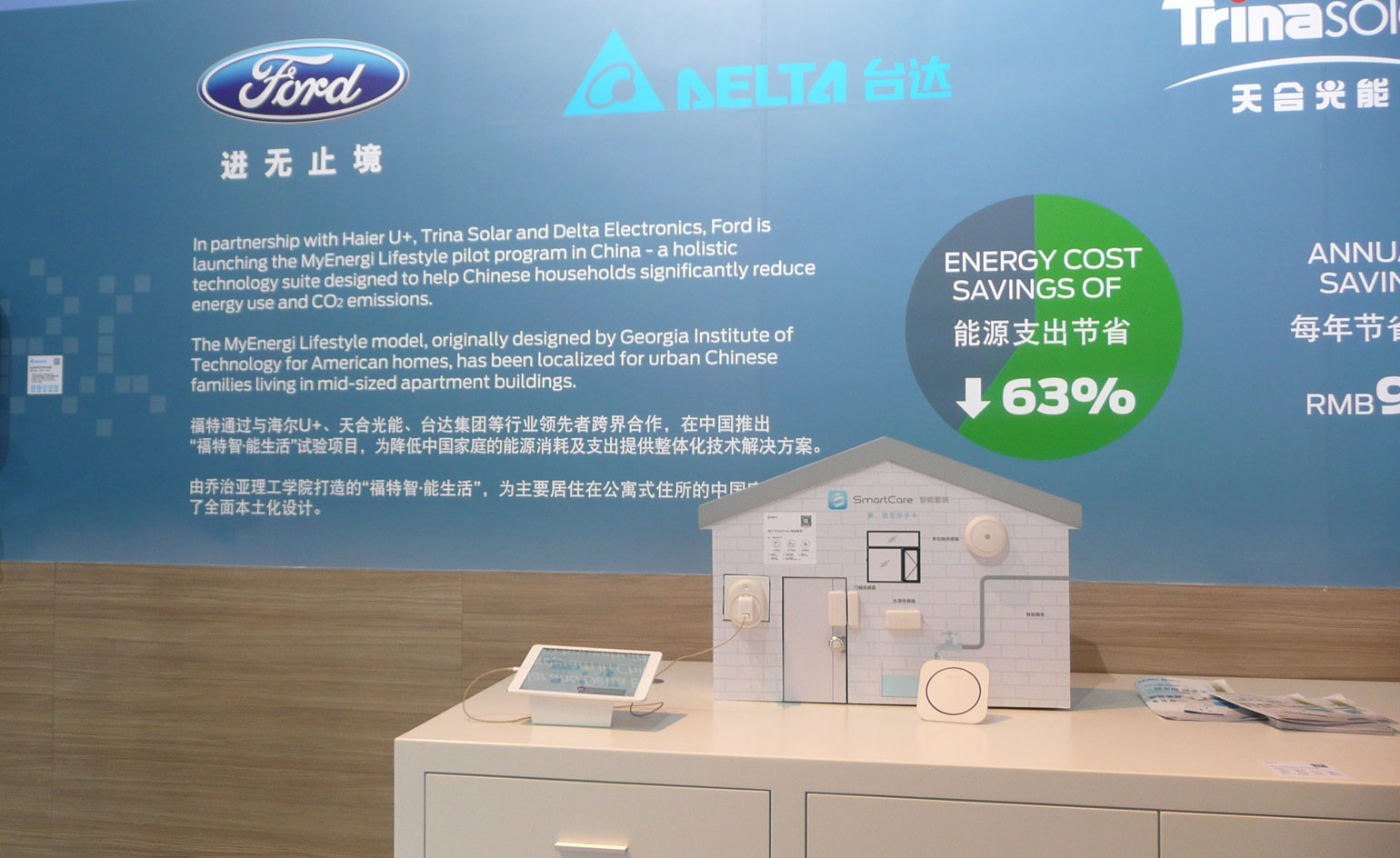
...The pilot programme will run in Shanghai and Beijing to show the impact of energy-saving products by combining renewable energy sources, efficient home appliances and a plug-in vehicle. Ford is aiming to cut household power bills by as much as 60% with this scheme
A writer and editor based in London, Nargess contributes to various international publications on all aspects of culture. She is editorial director on Voices, a US publication on wine, and has authored a few lifestyle books, including The Life Negroni.
-
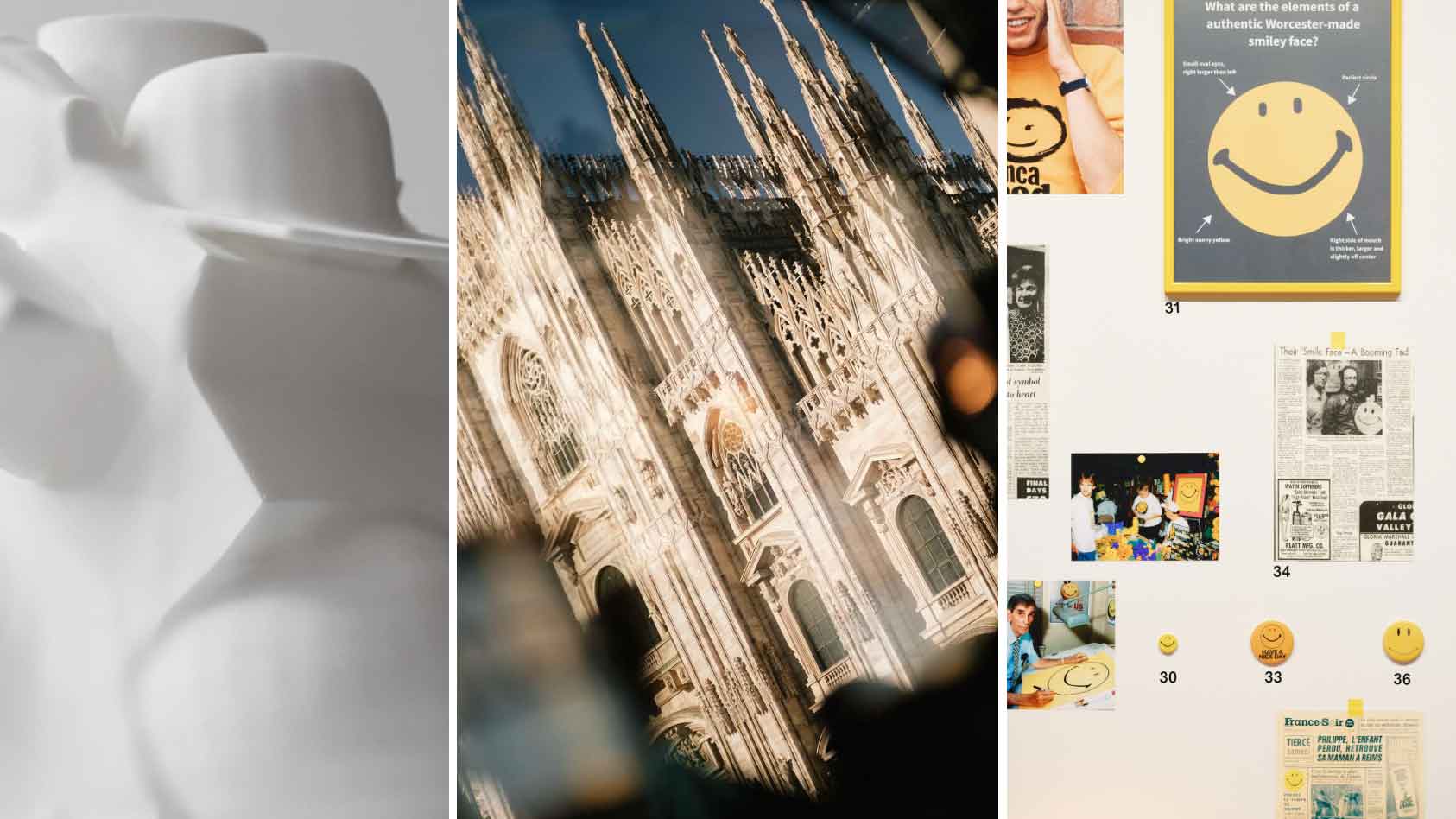 We asked six creative leaders to tell us their design predictions for the year ahead
We asked six creative leaders to tell us their design predictions for the year aheadWhat will be the trends shaping the design world in 2026? Six creative leaders share their creative predictions for next year, alongside some wise advice: be present, connect, embrace AI
-
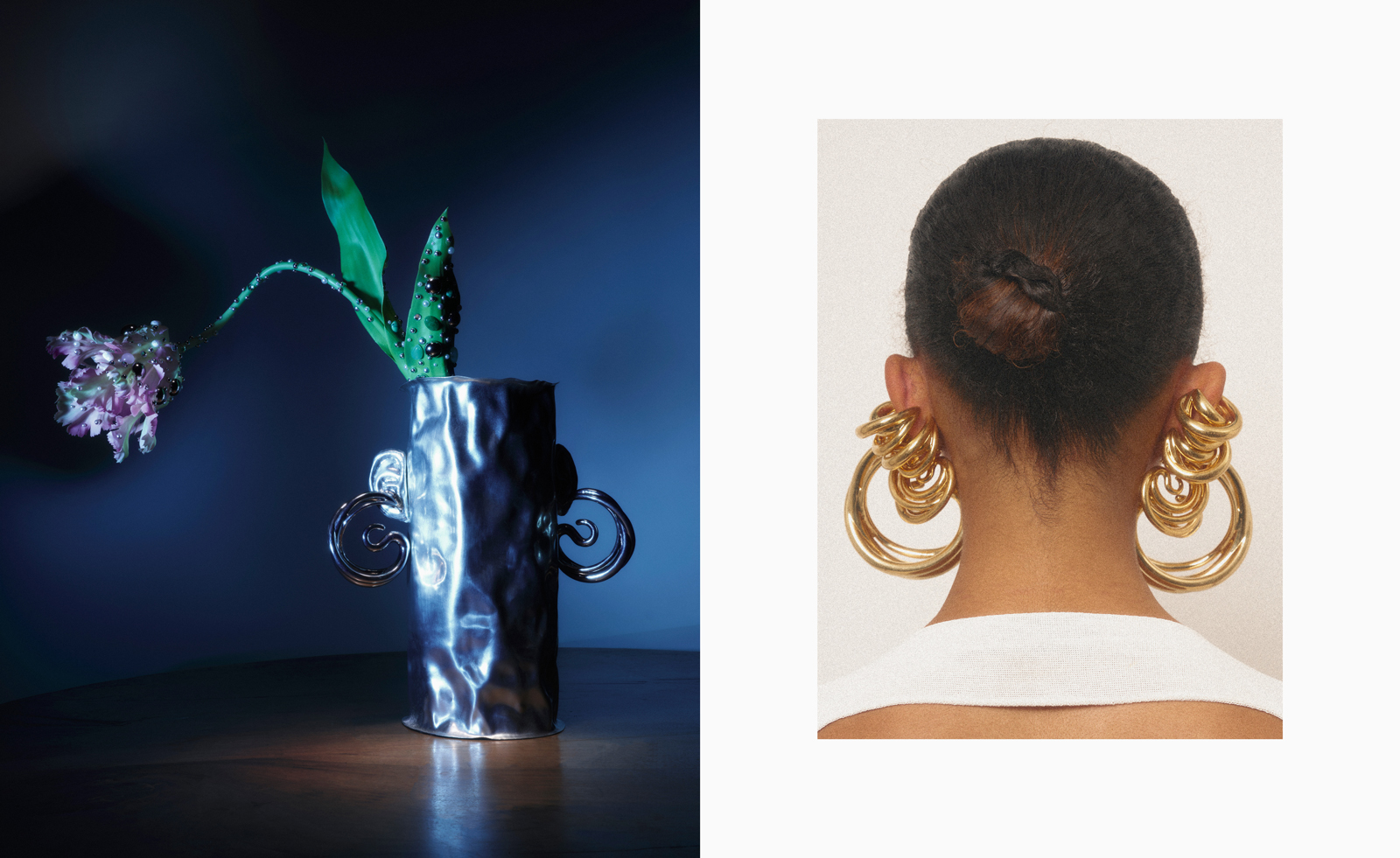 10 watch and jewellery moments that dazzled us in 2025
10 watch and jewellery moments that dazzled us in 2025From unexpected watch collaborations to eclectic materials and offbeat designs, here are the watch and jewellery moments we enjoyed this year
-
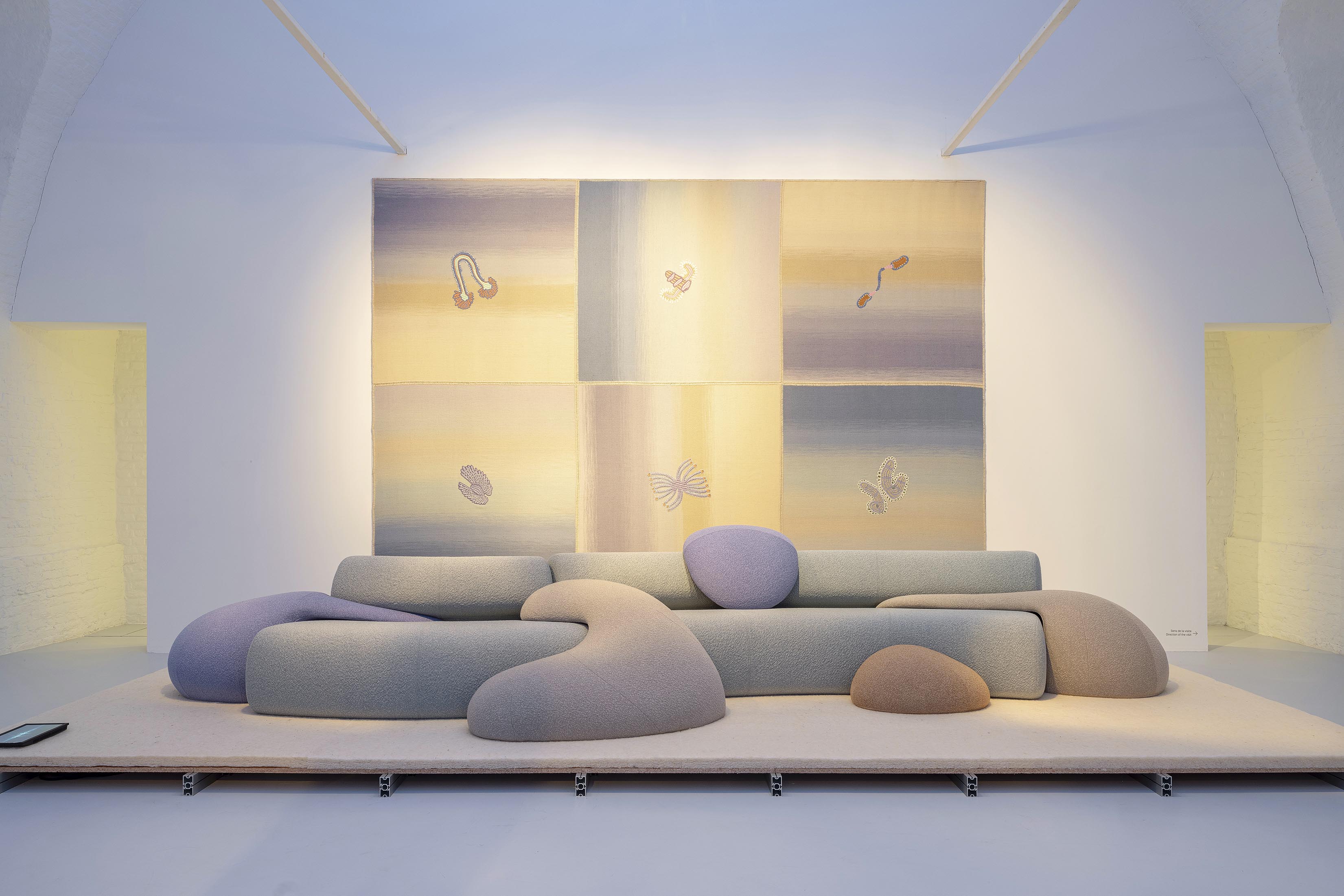 Patricia Urquiola reveals an imaginative inner world in ‘Meta-Morphosa’
Patricia Urquiola reveals an imaginative inner world in ‘Meta-Morphosa’From hybrid creatures and marine motifs to experimental materials and textiles, Meta-Morphosa presents a concentrated view of Patricia Urquiola’s recent work
-
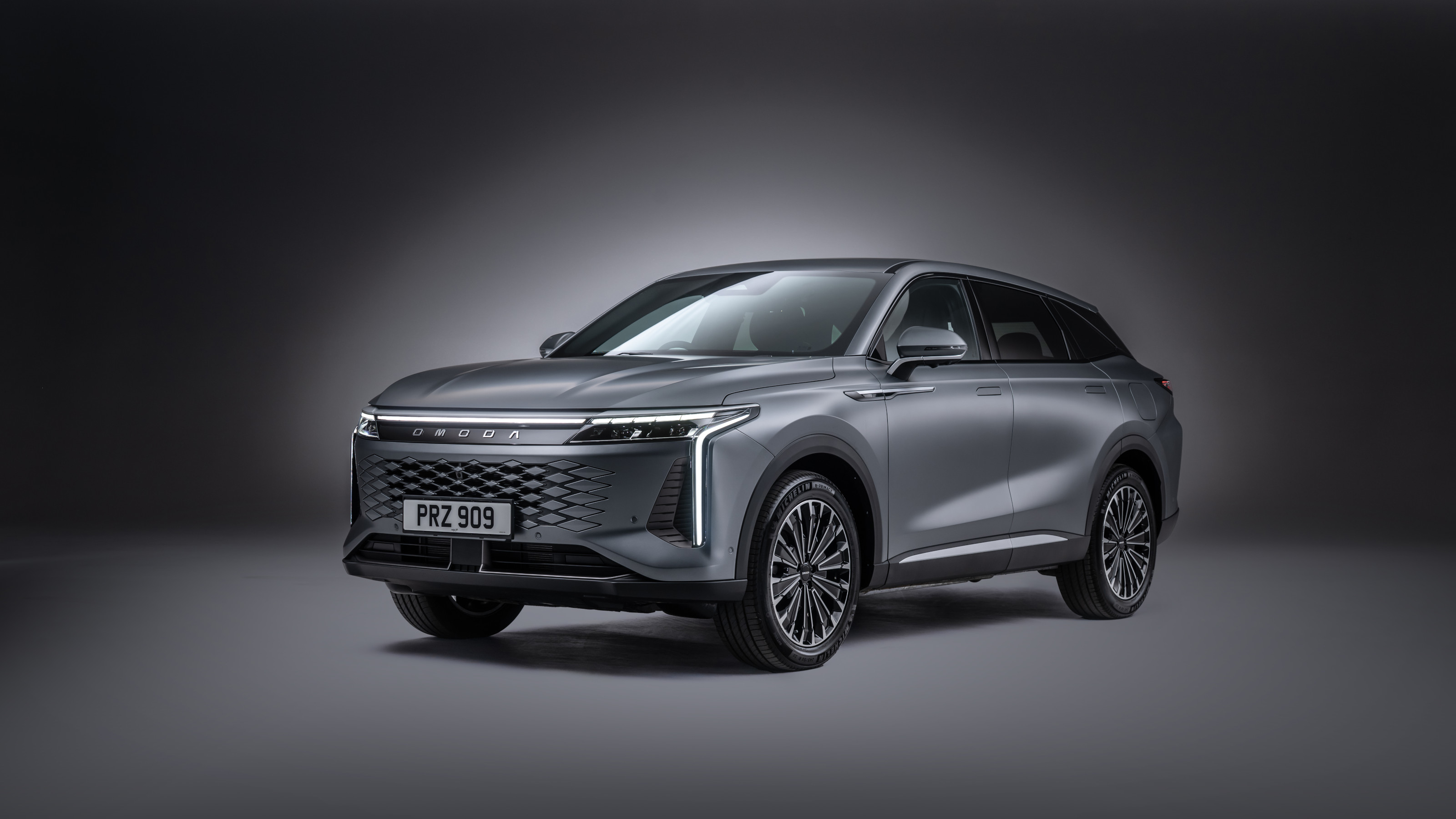 The newest car brand to arrive from China, Omoda is aimed squarely at the luxury sector
The newest car brand to arrive from China, Omoda is aimed squarely at the luxury sectorThe Omoda 9 brings Chery’s Super Hybrid System to Europe’s roads, a smart but affordable luxury SUV with a long-legged range and a very high specification
-
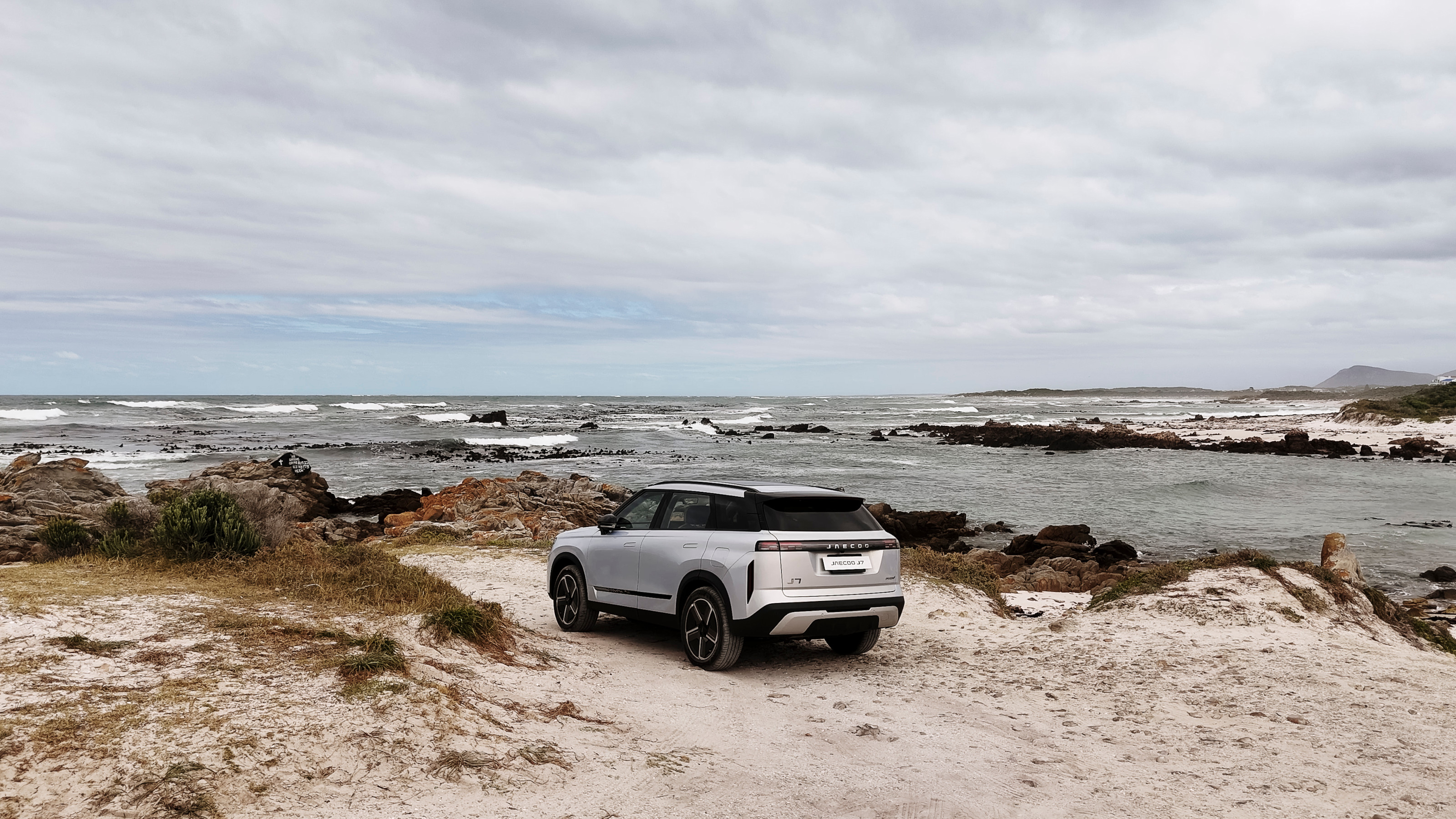 We take the new Jaecoo 7 SUV along South Africa’s famous Garden Route
We take the new Jaecoo 7 SUV along South Africa’s famous Garden RouteEndurance, efficiency and economic soft power, Wallpaper* experiences China’s new SUV challenger on a gentle safari across South Africa
-
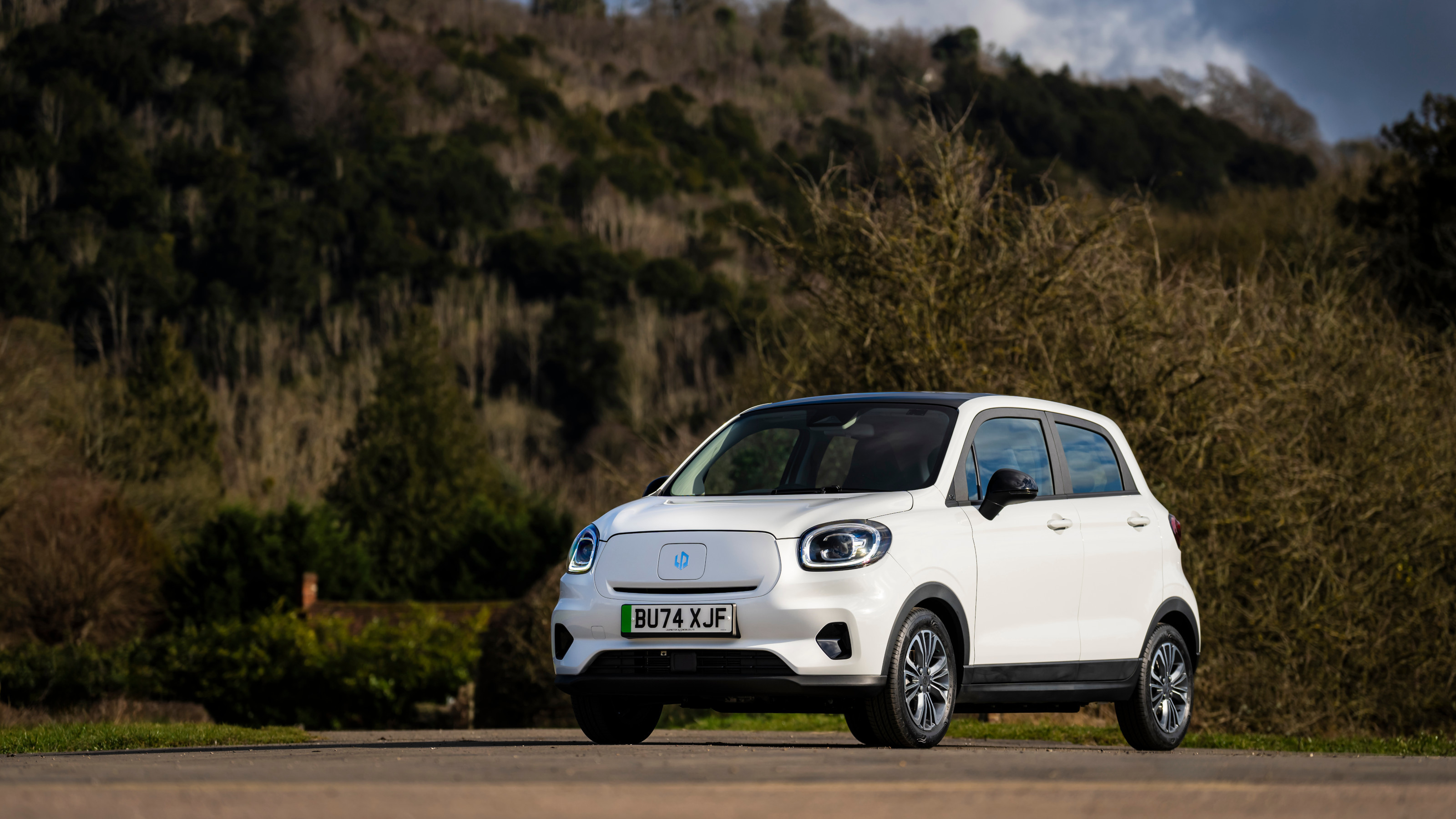 China’s Leapmotor pounces on the European car market with its T03 city car and C10 SUV
China’s Leapmotor pounces on the European car market with its T03 city car and C10 SUVLeapmotor’s tiny electric city car could be just the tonic for cramped urban Europe. We sample the T03 and its new sibling, the fully loaded C10 SUV, to see if the company’s value proposition stacks up
-
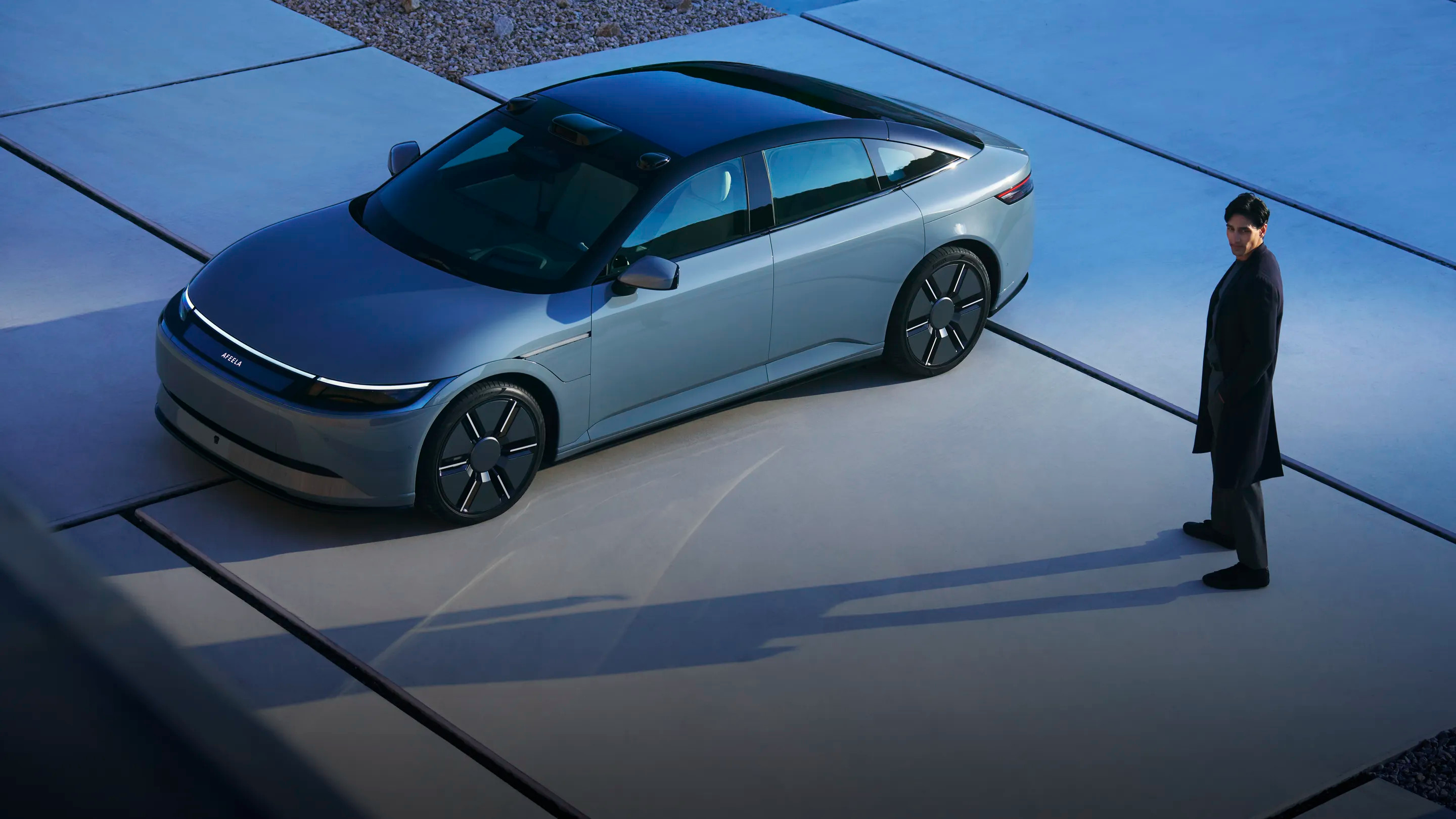 CES 2025: the mobility edit. The wheeled and wonderful machines from this year’s show
CES 2025: the mobility edit. The wheeled and wonderful machines from this year’s showCES’s vehicular content keeps on increasing, with big names making big debuts to an eager tech-centric audience
-
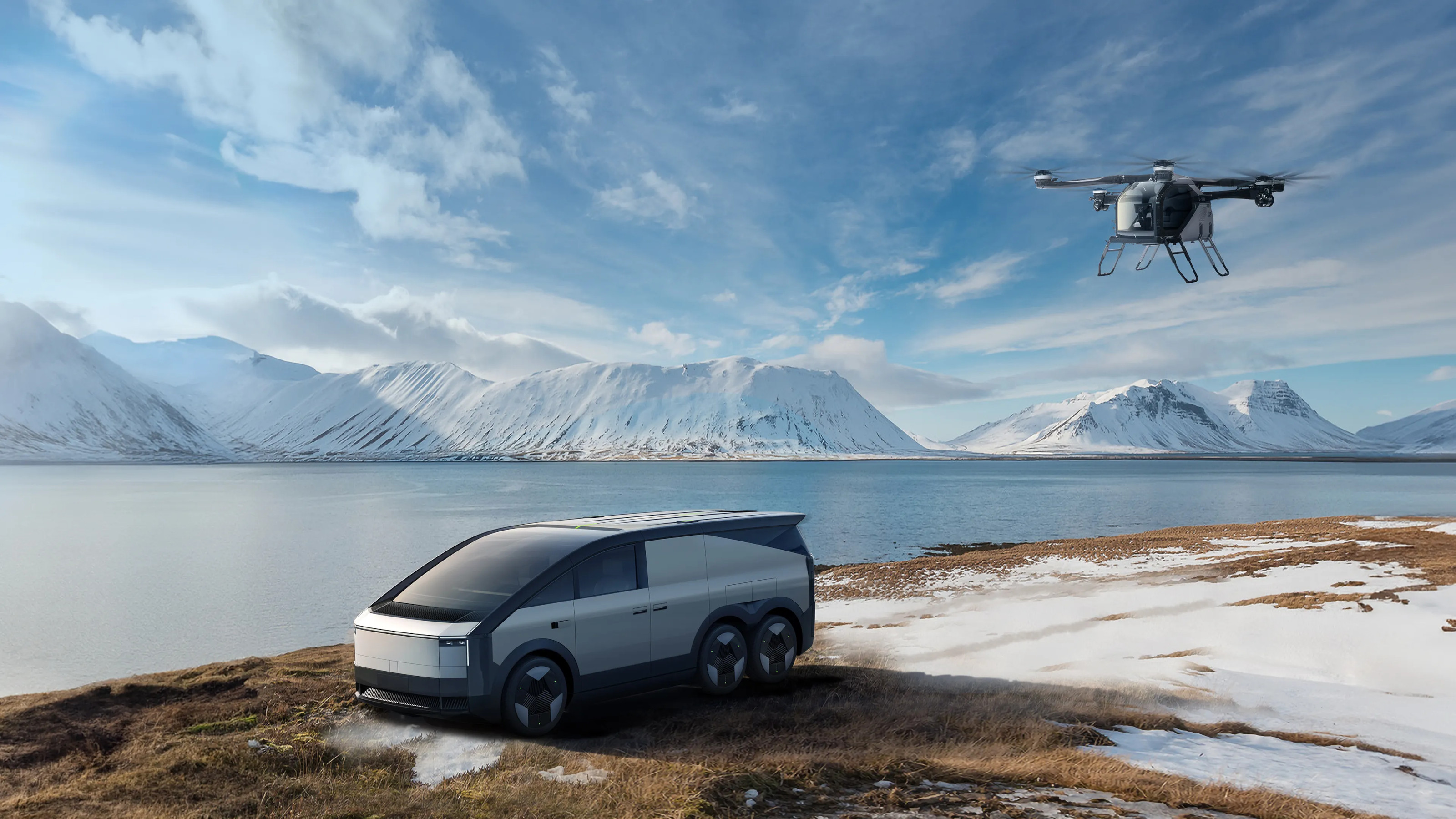 Taking off? XPeng Aero HT promises world’s first all-electric ‘Land Aircraft Carrier’
Taking off? XPeng Aero HT promises world’s first all-electric ‘Land Aircraft Carrier’Six wheels, six rotors, four seats and an aesthetic that bests even the boldest futurologist – Chinese manufacturer XPeng looks to the skies with this truck and its onboard flying machine
-
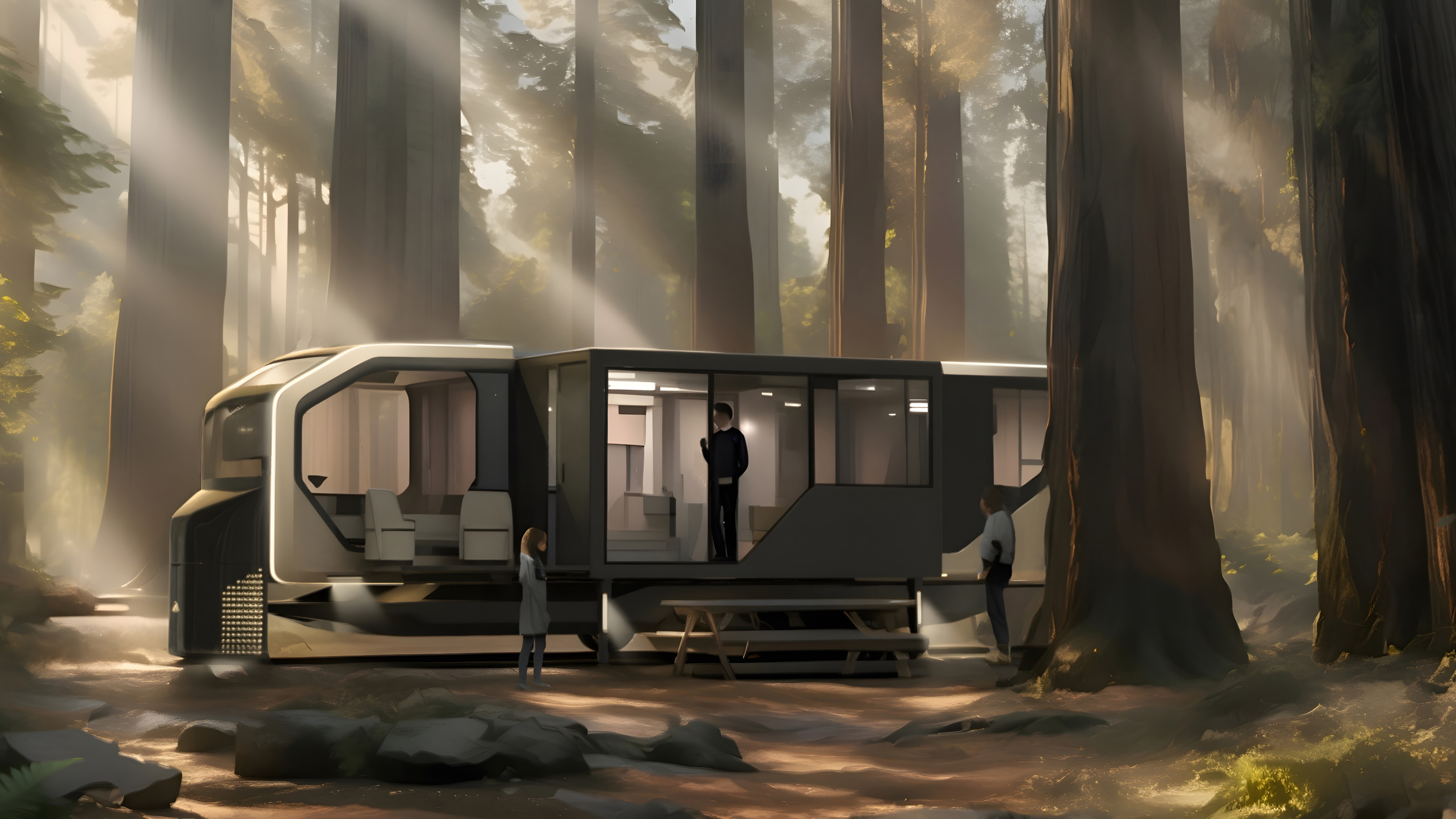 AC Future and Pininfarina’s RV concepts create the ultimate in mobile living at CES 2025
AC Future and Pininfarina’s RV concepts create the ultimate in mobile living at CES 2025This trio of smart, expandable RV concepts from AC Future continues the industry's ongoing design evolution and our fascination with life on the road
-
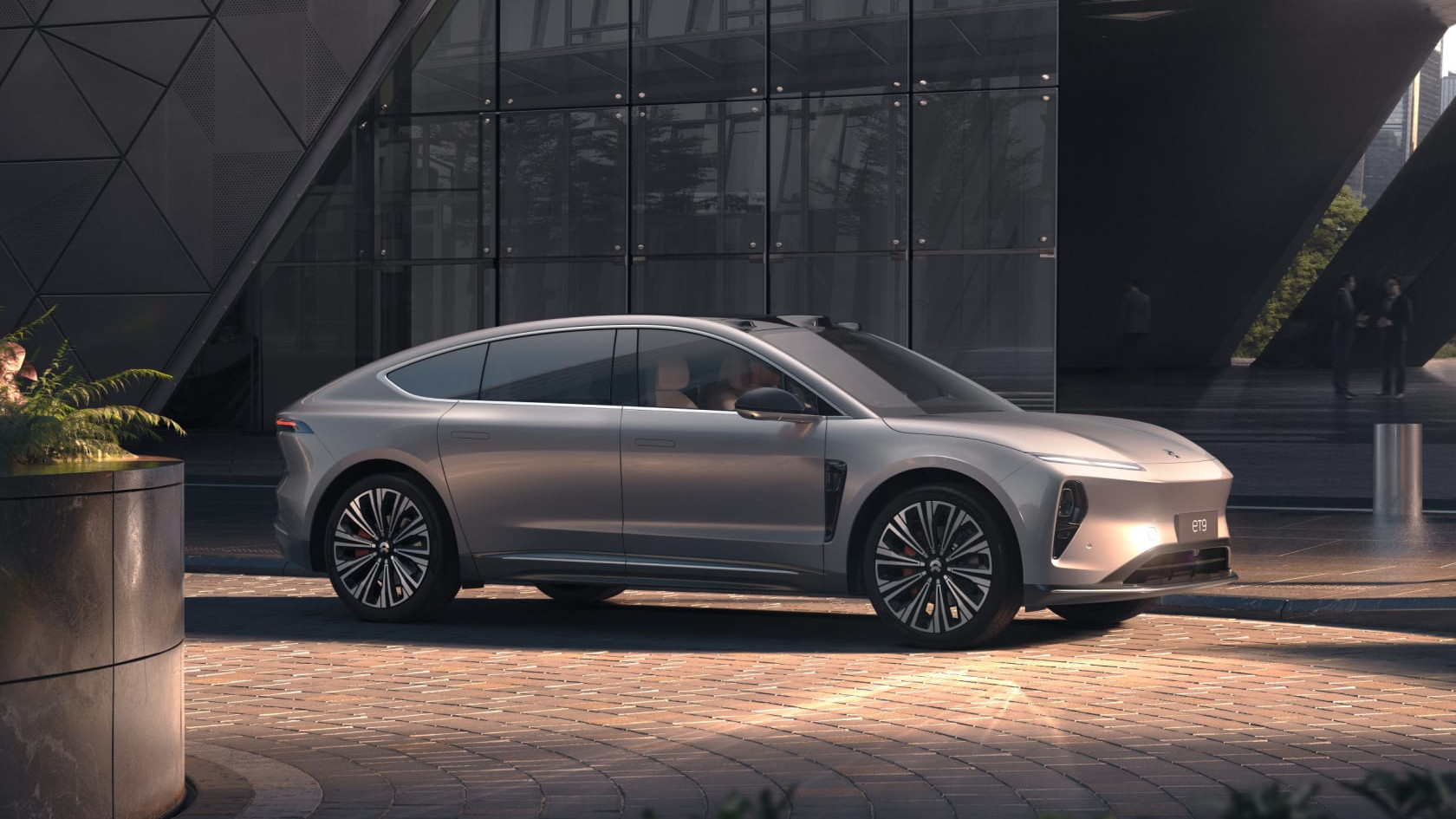 The innovations and eccentricities coming soon from the Chinese auto industry
The innovations and eccentricities coming soon from the Chinese auto industryChina accounts for 75 per cent of new EVs, and new models arrive on a weekly basis. Here are some of the key brands looking to reshape the automotive landscape in the years to come
-
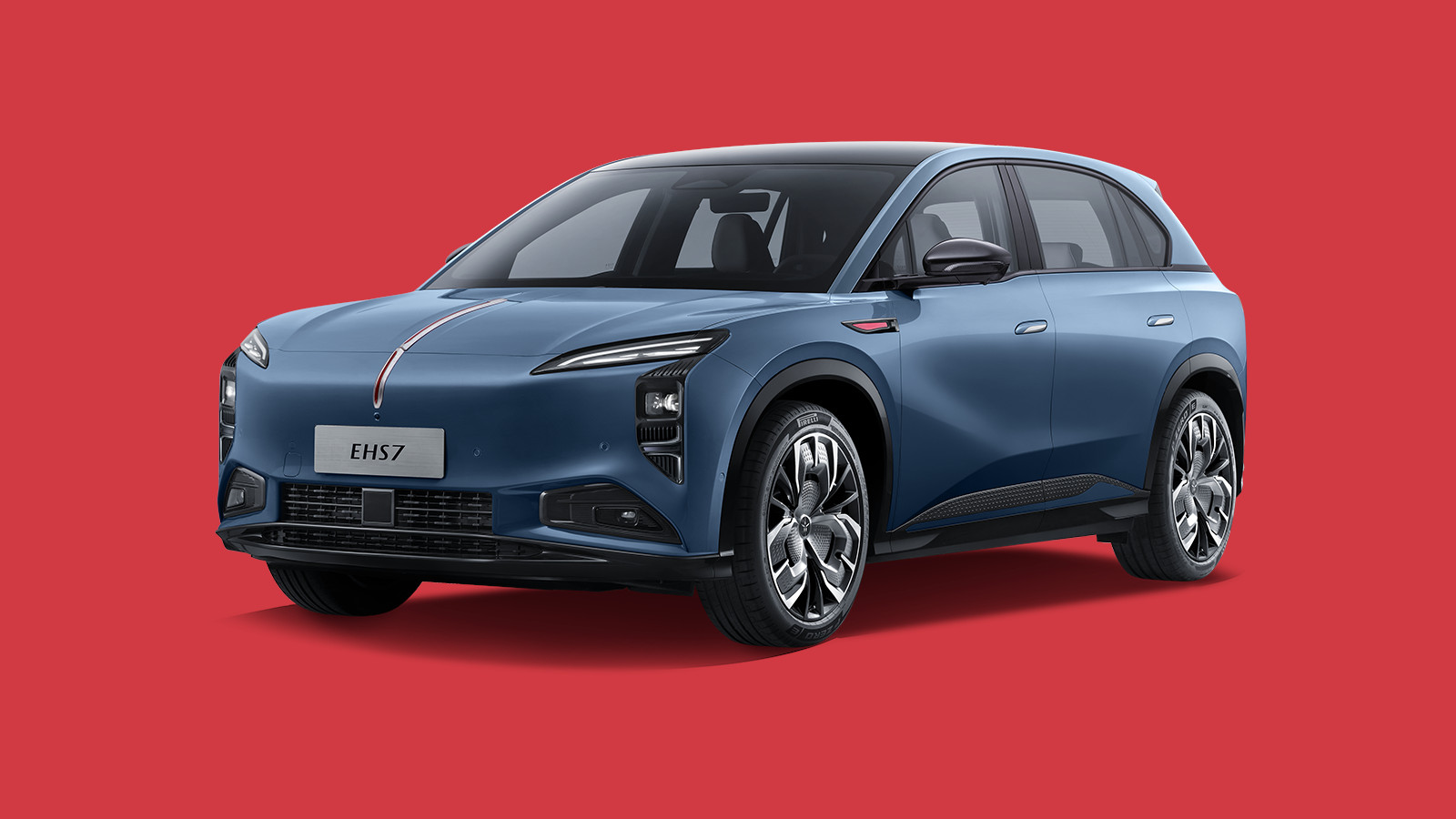 Hongqi’s Giles Taylor on the Chinese car maker's imminent arrival in the UK
Hongqi’s Giles Taylor on the Chinese car maker's imminent arrival in the UKHongqi makes China's state limousines. By 2026, it'll have a pair of premium EVs on UK roads. Giles Taylor, its VP of design, tells us about its design approach, and ambition in Europe